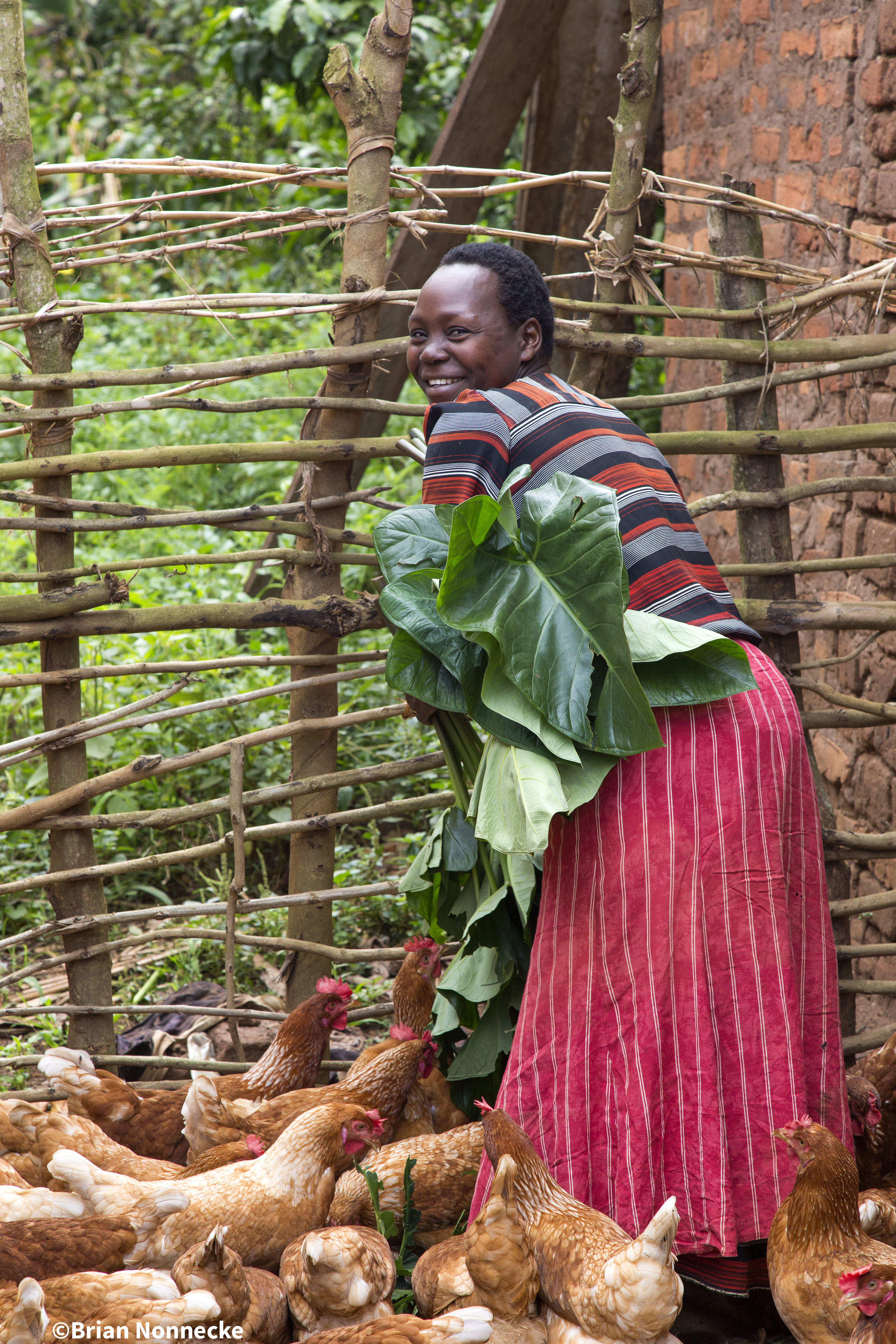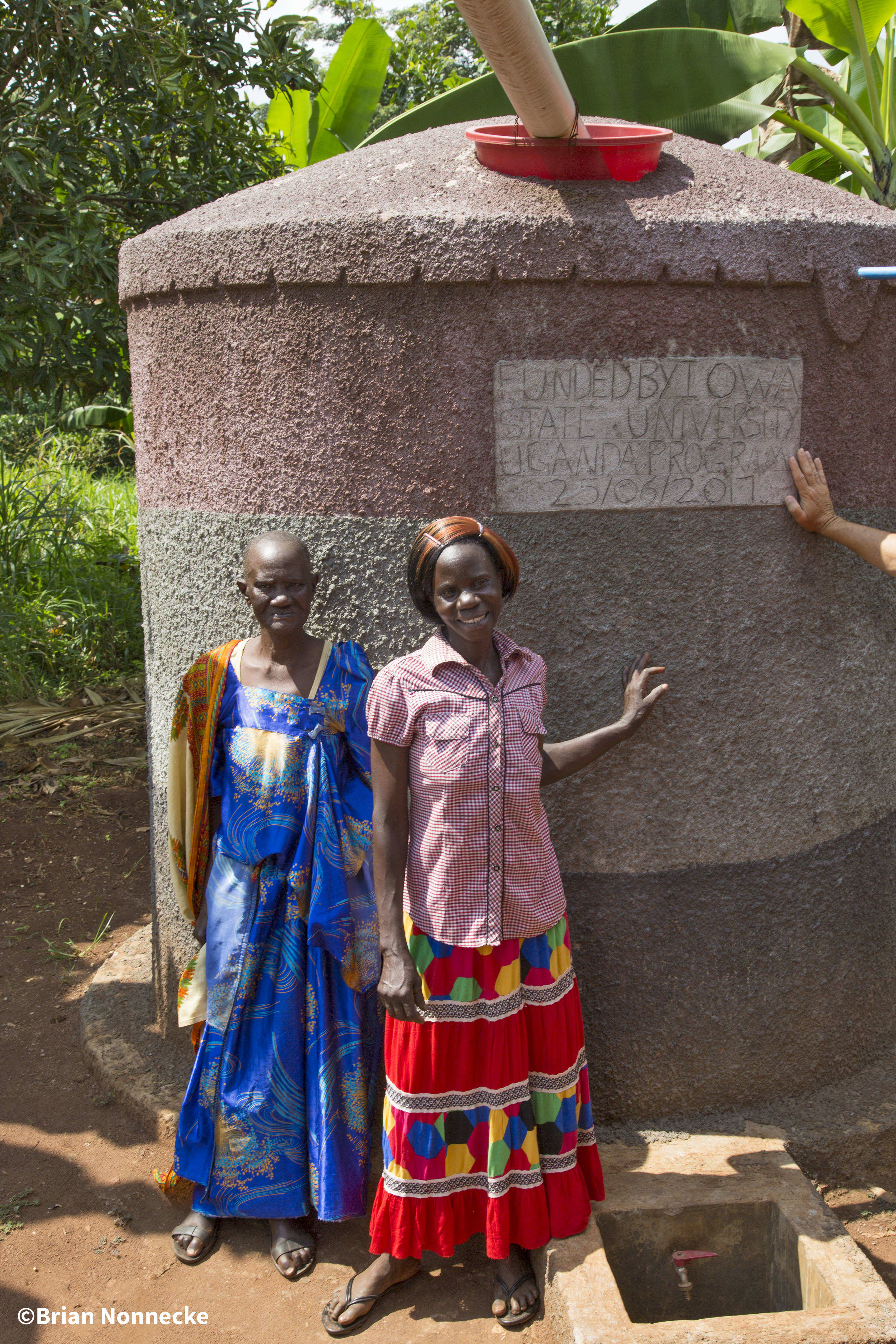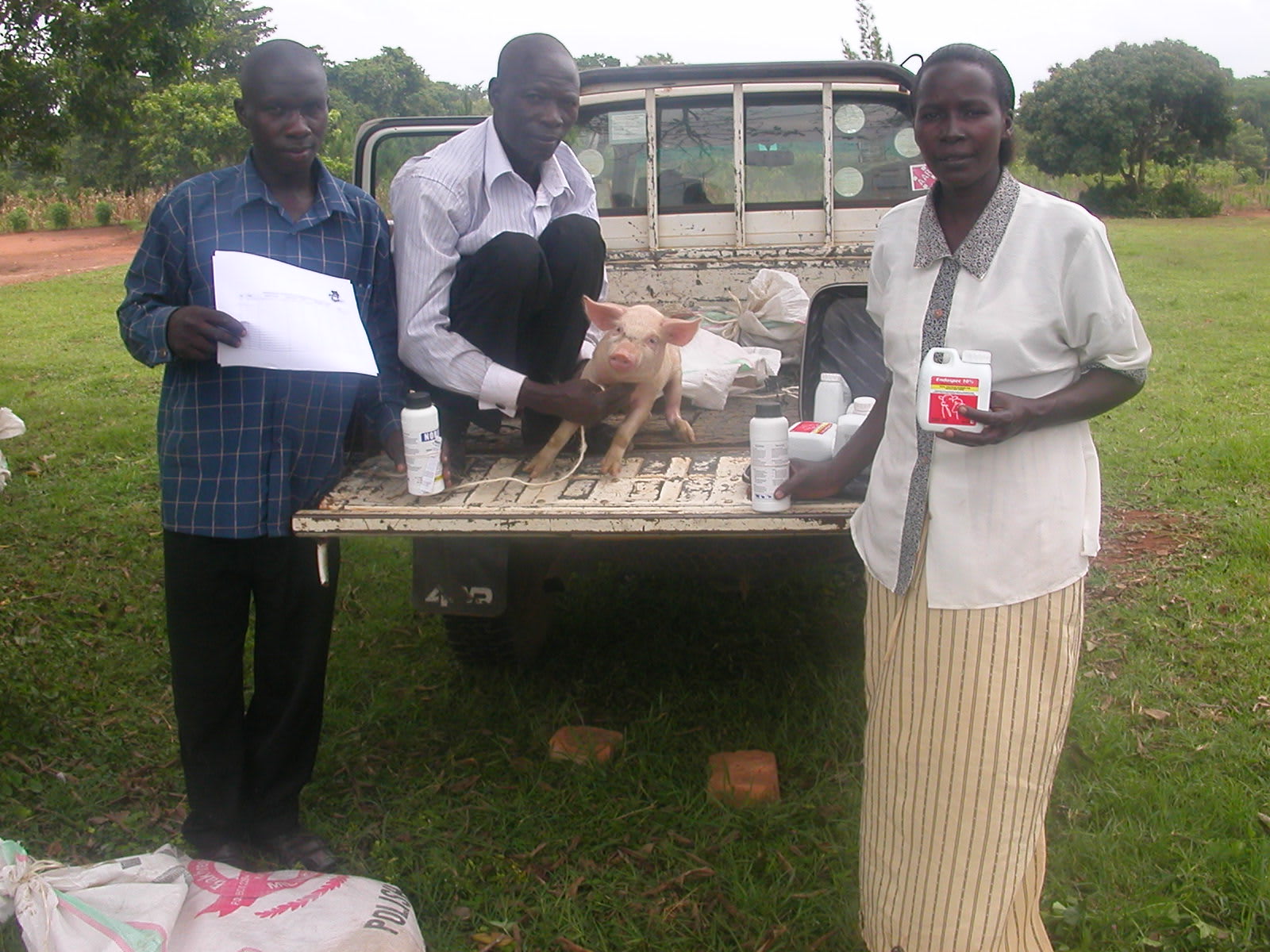CSRL Uganda Livestock Integration Program
The ISU Center for Sustainable Rural Livelihoods invites you to share in changing the lives of men and women farmers, youth entrepreneurs and children in rural Uganda by supporting the expansion of livestock production, improved animal health and increased animal-source foods. This expansion will be managed through the Iowa State University-Uganda Program in Kamuli District, Uganda. Your contributions will help:
- Provide chickens, feed and vaccines to help women in poverty transition to entrepreneurs of profitable poultry operations (see #1)
- Provide vital nutrients to infants, children and mothers through production of animal-source foods (see #2)
- Improve economic security for families to provide funds for school fees and improve their homes (see #3)
- Purchase construction materials for a water collection system to provide safe water for family and livestock (see #4)
- Fund training programs to teach farmers to improve care of their livestock (see#5)
*The first $10,000 in donations will be doubled through matching funds.
-
 Poultry farm start up for women farmers: Poor women struggle to survive and provide for their children. Our program provides training, chickens, housing for the birds, vaccines and feed, and helps with marketing. This sustainable program allows for women farmers to use half the eggs they collect to pay for poultry expenses and feed their families and half the eggs to pay off their micro loan. In two years, they can have a completely sustainable and viable business for themselves and a continual source of protein for their families.
Poultry farm start up for women farmers: Poor women struggle to survive and provide for their children. Our program provides training, chickens, housing for the birds, vaccines and feed, and helps with marketing. This sustainable program allows for women farmers to use half the eggs they collect to pay for poultry expenses and feed their families and half the eggs to pay off their micro loan. In two years, they can have a completely sustainable and viable business for themselves and a continual source of protein for their families. -
Improved nutrition through animal-source foods: Proper nutrition is vital not only for children from conception to age five but also for the health and productivity of their families. Healthy children and families contribute to the positive development of their communities. Animal-source foods, especially milk and eggs but also meat, are crucial for nutritional diets. Most livestock farmers start out small with a few chickens, a couple of pigs, or a goat and eventually trade up to purchase a cow. When chickens start laying, eggs can be used for immediate consumption or for sale. Income from eggs can then be used to buy milk and other foods for improved nutrition.
- Economic security for livestock farmers: Livestock production is extremely important for all farmers. Trying to sustain a family on only garden plots is ultimately reliant on good weather and rain. Drought brings famine and hardship. Owning livestock allows farmers to use animals as agricultural banks and produce animals for quick sale to pay for school, medical costs and improvements to their homes. Once production is ongoing, many farmers expand and begin to enjoy regular income from livestock. Furthermore, livestock provide manure for the gardens, draft for plowing, and in the case of chickens or cows, a readily available animal-source protein.

- Water is the source of life: Hauling water from the local bore hole (well) is extremely labor intensive, and most families must commit their children or the women to hauling water for 2-3 hours per day using jerry cans. Water is critical to livestock, yet some families have limited access to a water source. Three interventions can help: availability of more cans to collect and carry water; a small system to collect and use water when it rains; a bigger system to collect and save larger quantities of water during the rainy seasons. Additionally, the drilling of bore holes serves entire communities and reduces the travel distance and time to access water.

- Training leads to successful livestock production: Farmers benefit from training focused on raising livestock effectively and efficiently. The new ISU-UP Mpirigiti Rural Training Centre makes farmer training possible and can focus on reducing disease and becoming biosecure as well as using the best available and least expensive feeds. Farmers learn best practices in husbandry approaches and receive assistance in forming groups to collectively purchase feed, vaccines and other materials at lower prices and market their animals at more favorable prices.

$10
First Comes The Egg
Contribute funds to buy 8 chicks to help a small farmer get a quick start. This donation combined with others will help supply chicks to replace older birds after they have quit laying.
$25
Help Carry the Load
Jerry cans are ubiquitous to Uganda as well as many other African countries. They are used to store and transport just about any kind of liquid. In the case of the ISU Livestock Integration Project, they are utilized for fetching water for chickens, pigs, goats and cows to help them grow and produce.
$50
Rain Water Collection
Catching rain water is one way to get water for daily household use and it saves many hours of time from fetching and hauling it back from the borehole. A small system of rain gutters and a small barrel can catch 1-2 days of water after a rain.
$100
It's Only Chicken Feed
Feed (at times) is quite expensive for chicken or pig operations. One hundred dollars will help pay for a significant amount of feed to help at the school poultry unit or for a group of women farmers.
$250
Education, The Path To Success
Help train 20 farmers in better ways to manage their livestock. This gift provides for transportation and a full day of training to improve livestock production and marketing.
$300
Help Someone Get Their Goat
Goat farming is one way to get farmers on the path to economic security. Buying a goat also requires building an enclosure and vaccinating the goat and treating it routinely to avoid parasites. This funding will start one farmer on his or her path to sustainable food production.
$800
Little Piggy Went To Market
In Uganda, pork is in higher demand than any other animal source food. However, starting a pig farm requires more than a few pigs. Initial feed, vaccinations and a biosecure shelter helps pigs to get a good start. Once pigs are doing well they can be sold to pay for school fees, buy food and supplies for the household, or to pay for doctor bills. This money will start one farmer on the path to economic success.
$1,000
No More Hauling Water!
Building an above ground water tank to catch rain in the rainy season alleviates the need to carry water for livestock or the household for several months. This allows children to stay in school and gives women more time for their families, their gardens, and other activities.
